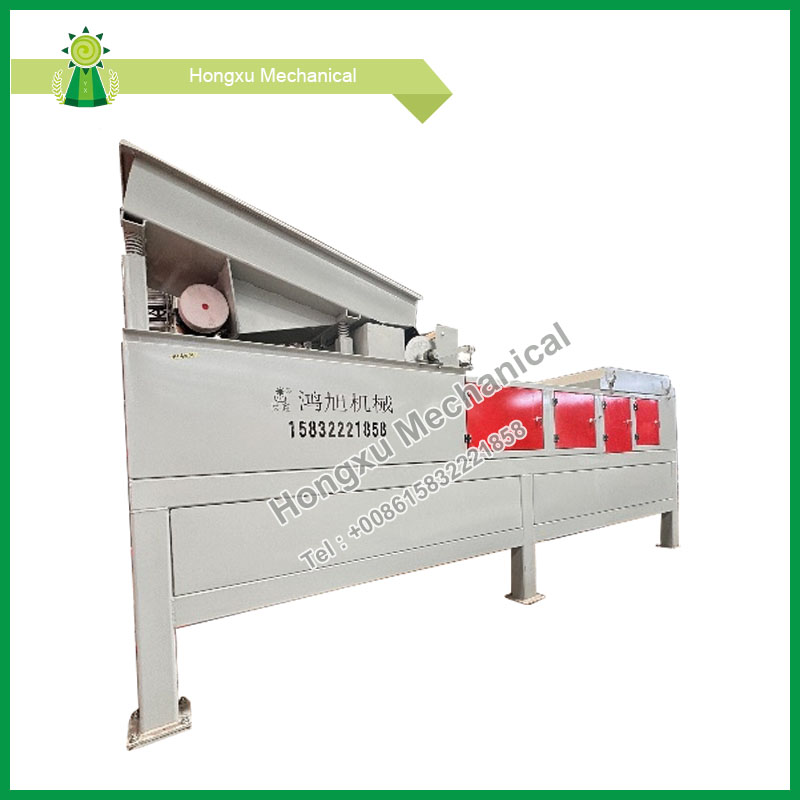What's The Importance of Eddy Current Separator In Recycling Industries?
2025-02-05
In the modern recycling industry, efficient separation of materials is crucial for sustainable waste management and resource recovery. One of the most important technologies in this field is the eddy current separator (ECS), which plays a key role in sorting non-ferrous metals from mixed waste streams. This advanced separation technology helps increase efficiency, reduce environmental impact, and maximize the value of recovered materials. Let’s explore the significance of eddy current separators in the recycling industry.
How Does an Eddy Current Separator Work?
An eddy current separator uses the principles of electromagnetic induction to separate non-ferrous metals like aluminum, copper, and brass from waste materials. When these metals pass through the high-speed rotating magnetic rotor, eddy currents are induced within them, generating a repelling force. This force pushes the non-ferrous metals away from other materials, allowing for easy separation and collection.

The Role of Eddy Current Separators in Recycling
1. Enhancing Metal Recovery Efficiency
Eddy current separators significantly improve the recovery of valuable non-ferrous metals. By efficiently separating aluminum, brass, and copper from waste streams, ECS ensures that these metals can be recycled and reused in various industries instead of ending up in landfills.
2. Reducing Environmental Impact
Recycling metals using ECS technology reduces the need for mining and raw material extraction, leading to lower carbon emissions and less environmental degradation. This helps conserve natural resources and supports a more sustainable future.
3. Cost Savings in Recycling Operations
By automating the separation of non-ferrous metals, ECS reduces labor costs and improves operational efficiency. Recycling plants can process large volumes of waste with minimal manual intervention, leading to increased productivity and profitability.
4. Improving the Purity of Recycled Materials
ECS not only recovers valuable metals but also ensures that non-metallic materials like plastics and glass are free from metallic contamination. This improves the quality and marketability of recycled products, making them more suitable for reuse in various industries.
5. Minimizing Waste and Promoting a Circular Economy
By effectively extracting non-ferrous metals, ECS helps reduce landfill waste and promotes the reuse of valuable materials. This aligns with circular economy principles, where resources are continuously repurposed rather than discarded.
Industries Benefiting from Eddy Current Separators
Eddy current separators are widely used across various recycling and waste management industries, including:
- Municipal Solid Waste Recycling – Recovering aluminum and other non-ferrous metals from household and industrial waste.
- E-Waste Recycling – Extracting valuable metals from discarded electronics and appliances.
- Automobile Shredding – Separating non-ferrous metals from shredded vehicle components.
- Plastic Recycling – Ensuring metal-free plastic waste for high-quality recycling.
- Glass Recycling – Removing metal contaminants to produce pure glass products.
Conclusion
Eddy current separators are an indispensable part of the recycling industry, offering a highly efficient and cost-effective solution for separating non-ferrous metals. By improving metal recovery, reducing environmental impact, and promoting sustainable practices, ECS technology plays a key role in advancing global recycling efforts. As industries continue to adopt greener solutions, the importance of eddy current separators will only continue to grow.
Investing in this technology not only benefits recycling companies but also contributes to a cleaner and more sustainable environment for future generations.


